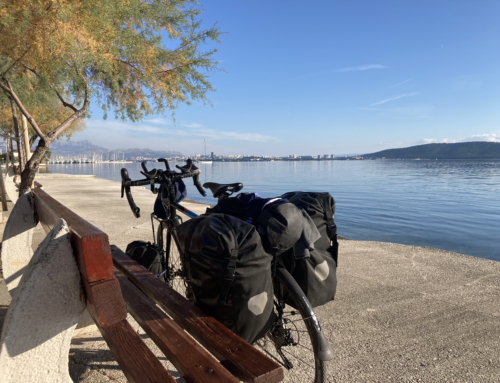
Woollen shrouds have a small carbon footprint
Live lightly, die gently
What are “natural burials” and how are they different from ordinary burials? Yuli Somme, a shroud maker from Chagford, tells us about coffins and shrouds, cremation and burial.
Carbon Savvy: For an eco-friendly funeral, what do I need to think about?
Yuli Somme: Two things. What you are going to put the body in, and how it will be disposed of. For the first, the main options are coffins and shrouds, for the second it’s a choice of burial or cremation.
CS: How does a shroud differ from a coffin?
YS: A conventional coffin needs a lot of wood, which means cutting down trees, and a high transport footprint. Teak veneers and other expensive woods are often imported. They usually contain plastic, which pollutes the air if burned, or the soil if buried. A woollen shroud can be made from local materials, is non-polluting, and much lighter to carry.
CS: Tell us more about the materials used for coffins.
YS: A quick summary of the main materials used and things to look out for would be:
- MDF chipboard. Most coffins are made from this. Best avoided due to pollutants.
- Cardboard. The chemicals present in the cardboard mean this is not as eco-friendly as it seems. You also need to ensure it doesn’t have a plastic lining.
- Bamboo and seagrass. These materials are imported, often from the Far East, so we don’t know how sustainable they are.
- Willow. Sadly, the demand is so high that it’s now a monocrop in Eastern Europe. When sustainably grown in the UK, this is eco-friendly.
- Reclaimed or local, well-managed wood is used by some independent funeral suppliers. Very eco-friendly.
- Be aware that most coffins are lined with Cremfilm, a thick plastic which prevents leakages – people don’t want to see stuff coming out of the coffin. The Cremfilm gets covered, often with a polyester lining. There may also be plastic handles and other components. Again, best avoided.
CS: How are shrouds made?
YS: You can use any natural fabric and a simple shroud burial is a truly eco-friendly option. That said, cotton carries a very high carbon footprint for a number of reasons, so is the least eco-friendly of the shrouds. Up-cycled natural textiles made of wool, linen or hemp are the most eco-friendly in terms of resource use, but if they are not organic they will still release chemicals into the ground. I use felted organic wool and a wooden frame, so the body can be carried with ease. All the materials are carefully chosen with local sourcing, organic certification and up-cycling as a priority. I believe these shrouds are the most eco-friendly option as they are light in use of resources and also do not carry pollutants.
Read more about Yuli’s shrouds here https://www.bellacouche.com/
CS: Tell us about cremation
YS: 70% to 80% of funerals in the UK are cremations, needing fossil fuels to burn the bodies and they emit 20% dioxins plus a load of other stuff that gets vaporised. Sadly, it’s not environmentally friendly at all. Because of the materials used in the coffin, the ashes you get back are classed as toxic, so you cannot just scatter them, you have to get permission to do so.
CS: What about burial?
YS: A wonderful option is a “natural burial” site. These often maximise biodiversity and there may well be trees and grazing animals. Natural burial is not about buying a plot and putting a gravestone on it. It’s about buying into a place that we care for – we have to get over our squeamishness about walking on graves! While a traditional grave is six feet deep, natural burials are just two or three feet down where soil microbes live. What does nature teach us about death? That we need to go back to the soil.
Read more about Natural Burials here: https://www.bellacouche.com/natural-burial-sites
The carbon footprint of funeral services*
Woollen shroud: 13kg **
Solid wood coffin: 21kg
MDF coffin: 46kg
Cremation: 126 kg for natural gas
Traditional Burial: 4kg (excavator)
Natural Burial: 0kg (dug by hand)
*Source: Planet Mark
** Less if the wool is organic.
Some cost comparisons
Bellacouch Leafcocoonwithout frame: £275 – with integrated wooden frame: £610 (Plus postage)
Cardboard coffins range from £150 – £500
Conventional wood coffin, ranges from £300 – £10,000
Sustainably sourced willow coffin from £750Leafcocoon without frame: £275
Many thanks to Yuli Somme for telling us about her work with shrouds and green burials.





